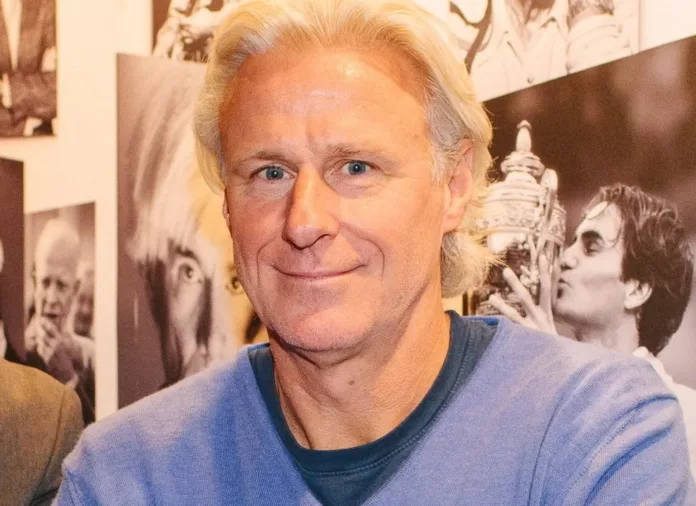Tennis icon, 69, breaks silence on drugs, overdoses and cancer after quitting at just 26
Björn Borg has finally broken four decades of near-silence to reveal the private collapse that followed his shock retirement from tennis at 26. In an unflinching new memoir, the five-time consecutive Wimbledon champion and six-time French Open winner admits he tried to numb mounting misery with cocaine, pills and alcohol—choices that led to overdoses, a chaotic personal life and, more recently, a battle with aggressive prostate cancer.
Borg, speaking in Stockholm ahead of the publication of Heartbeats, says he spent years running from fame and himself. “I’m a very secret person,” he admits, and for 42 years that secrecy mostly held. But now, at 69, he wants the full story told. “The decisions I took in my life were stupid,” he says, explaining that he asked his wife, Patricia Östfeld, to help him put everything on the record—“everything,” as he stresses.
At his peak, Borg dominated the sport with an icy serenity that earned him the nickname “Ice Borg”. In 1981 he still reached three of the four grand slam finals, winning Paris and finishing runner-up at Wimbledon and the US Open. Then, almost without explanation, he walked away. The truth, he says, was suffocating fame: hotels swarmed by autograph-hunters, restaurants besieged by photographers, and the creeping sense that he had no life beyond the baseline. “I stayed in my room. I ate in my room. I didn’t go out,” he recalls.
The first year after retiring felt liberating. He moved to the US, partied, and then chased the adrenaline he had lost with the game. In the summer of 1982 he tried cocaine. “I got the same kind of rush I got from tennis… I was hooked immediately.” The spiral accelerated: more drugs, uppers, downers, booze. His marriage to Mariana Simionescu ended; he became a father to Robin in 1985 but felt unable to be present. He lurched through relationships, business turmoil and depression. The parties, he now says, masked a “miserable” existence: “When you feel bad you try to escape… with drugs, pills and a lot of alcohol.”
In 1989, as his life unravelled in Milan during a marriage to Italian singer Loredana Bertè, an accidental overdose nearly killed him. Paramedics saved him after she could not wake him. Even that wasn’t the end; he slipped again. The worst relapse came in 1993, when he collapsed on the way to an exhibition match with his father and woke in hospital “very close to dying”. The shame of facing his father still stings.
He tried to come back to tennis not to reclaim titles, but to stay alive. In 1990 he moved to London, went into rehab, and started practising again. In 1991, at 34, he announced a professional return—famously stubbornly wielding a wooden racquet. He lost 12 matches from 1991 to 1993, but the results did not matter. “To stay alive,” he says simply, was the point. The senior tour later offered solace and reconnection with old rivals. John McEnroe, once the fiery foil to Borg’s calm, had been the one voice pleading with him not to quit. Their friendship endured; McEnroe even served as best man at Borg’s wedding in 1997.
For years Borg avoided Wimbledon out of embarrassment about what his life had become. When he finally returned in 2000, the ovation felt like absolution. Stability followed: marriage to Patricia, renewed bonds with the sport, business rebuilt, and a gentler rhythm of life—despite seasonal depressions he manages by spending autumns abroad.
Then came another test. Doctors diagnosed aggressive prostate cancer. Surgery in 2024 removed the immediate threat, but Borg lives with “sleeping cancer cells” and returns for six-monthly checks. He keeps moving—sometimes literally. In perhaps the most Borg detail of all, he walks 20km a day around his sofa, thinking, processing, keeping the darkness at bay.Now, with Heartbeats out, he says the burden has lifted. “I’ve got my backpack off my back… I’m so much lighter now.” The samurai of tennis finally lets us see the storm he held inside—and how, step by stubborn step, he found his way back from the edge.
